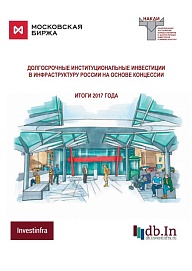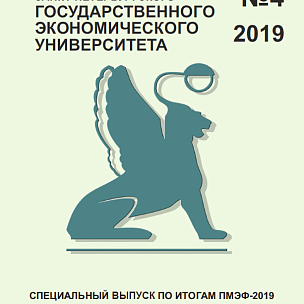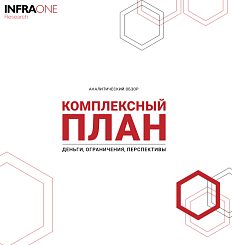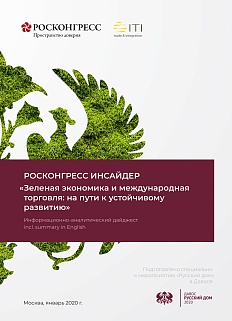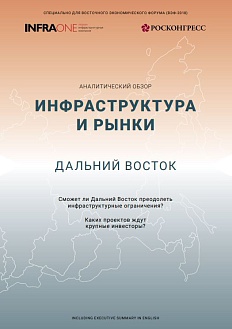In its annual report, the Analytical Service of the National Association of Concessionaires and Long-Term Infrastructure Investors (CoLTI) gives expert opinions about implementation of concession agreements in Russia, based on an analysis of data from the Investinfra Database and of the results of voluntary disclosure of information by the market participants.
According to the authors, in 2017, the number of infrastructure units in Russia designated to be transferred to concessions via tenders grew nearly twofold compared to the previous year (12,272 units at municipal level and 148 units at regional level), which evidences the growing need of regions for infrastructure projects based on concessions. The total number of concession tenders announced in 2017 has decreased by one-third year-on-year. However, the number of large projects (with investment commitments of over 1 billion rubles) has increased. The overwhelming majority of the announced tenders were in the housing sector (92% of all tenders) and were held by municipal bodies (97% of all tenders).
.png)
As for concession agreements, 51 agreements of medium (with investment commitments of 100 million rubles to 1 billion rubles) and large (over 1 billion rubles) categories were signed in 2017, with a total investment of 215,1 billion rubles. The leaders in terms of the number of concession agreements were the Moscow region and the Novosibirsk region, as well as the city of Saint Petersburg and the Republic of Tatarstan. The largest project was «Construction of the Central Ring Road of Moscow Region» which involves constructing a highway in the Moscow region. Overall, compared to 2016, the number of concession agreements of the medium and large categories has stayed the same. However, the total volume of investment commitments has slightly decreased.
.png)
In 2017, a number of federal laws and normative legal acts were adopted in the sphere of investment, concession agreements, and public private partnerships. The new laws and regulations will have a major impact on the investment process and will make regulatory control more stringent. In particular, the changes touched the housing sector, syndicated loans, and special investment contracts. Regretfully, as the authors note, both the legal framework and law enforcement practice in this sphere are still far from perfect in Russia and dont comply with the «infrastructure mortgage» program announced by the government.
In the last section of the report, the analysts explore the development of foreign markets of long-term infrastructure investments in 2017, based on data from a report from the World Economic Forum (WEF). The experts note an ever-increasing deficit in the pension systems of all major national economies. In the current environment, both long-term investors and their regulators will have to seek new ways to increase their efficiency. These may include a transition from guaranteed lifelong pension payments to pension plans with compulsory contributions; institutionalizing a new class of non-listed infrastructure assets; promoting principles of responsible investment.
This publication has been posted in the Roscongress Information and Analytical System on the recommendation of the Roscongress Foundation expert community.


